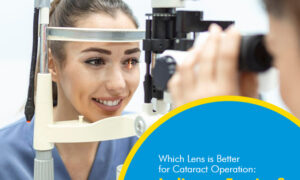
Everyone has received a crash course in numerous facets of health care due to the COVID-19 epidemic. Testing is one area where individuals are perplexed.
There are two types of coronavirus tests.
- The first is an antibody test, which determines whether you have antibodies in your blood. This test may show that you previously had COVID. The antibody test is a blood test that determines whether or not you have been exposed to COVID.
- The other is a diagnostic test to determine if you are currently infected with COVID-19. It is performed with a nasal swab. This is the test you would receive if you are experiencing symptoms or have been exposed to someone who has COVID.
What is the difference between antigen testing, antibody testing, and PCR (Polymerase Chain Reaction) testing? Which is the most trustworthy?
As the number of COVID-19 cases increases, the urgency of testing more people grows. Even with the promise afforded by vaccines, there is no doubt that coronavirus testing will continue to be necessary and will play a crucial role in containing the development of this worldwide epidemic. The rationale for this is straightforward: accurate and reliable testing has been shown to significantly restrict the spread of SARS-CoV-2, the virus responsible for COVID-19. Slowing the reach of this lethal virus will save lives, alleviate pressure on our health care systems, and ensure the safety of our employees. There has been considerable discussion about the various types of tests now available in the press. When those under development are included, it can be challenging to determine which testing strategy is the best fit for a specific case.
Antigen, antibody, and polymerase chain reaction (PCR) tests have advantages and disadvantages. It is critical to note that not all tests check for the same things.There are many important distinctions to keep in mind when deciding which test to use in a given situation, such as antigen and antibody testing.
There should be no worries about the reliability of any approved COVID-19 test now on the market, whether antigen, antibody, or PCR-based if these tests are appropriately administered by the appropriate staff and with the required space, equipment, and reagents. The actual question should be the type of testing to obtain detailed information on the COVID-19 situation. Let’s examine the three testing approaches, paying particular attention to what the test detects, how and where the test is usually performed, and most crucially, what type of information the test offers and in which circumstances it is most helpful.
PCR testing is the most often utilized type of test for determining if an individual has an active COVID-19 infection. These tests check for genetic material from the COVID-19-causing SARS-CoV-2 virus. Once a health care provider collects a sample, these tests can be performed promptly (within 1-2 hours) at the testing location or in a large central facility (anywhere from a few hours to a few days). These tests are the gold standard and can be used alone to diagnose COVID-19 infection. They frequently require specialist equipment to do the test (for example, a thermocycler), but they can be utilized remotely with the proper setup.
Antigen tests, frequently referred to as “rapid tests,” are also used to determine whether a person is currently sick but function better if a person has experienced symptoms for many days. These assays are intended to detect fragments of the virus’s proteins. After a health care professional collects a sample, antigen testing can generally be performed quickly. At the same time, you wait (a few minutes to around an hour), although they are sent to a central lab. One thing to bear in mind is that a second PCR test is required to confirm the antigen test result with the current generation of antigen testing. Because antigen testing usually does not require a great deal of specialized equipment, they are ideally suited to isolated locations.
Finally, antibody tests (also known as serology tests, but not to be confused with antigen tests) detect COVID-19 antibodies in the blood. They are the least frequently employed method for population-wide COVID-19 testing. Antibodies are molecules produced by the immune system in reaction to SARS-Cov-2; a positive antibody test indicates that the individual has previously been exposed to or infected with the virus. Because antibody tests involve a blood draw, samples are usually entirely collected and delivered to a laboratory for testing by a health care provider. While antibody testing is not the best method for determining if a person is infectious at the moment, knowing who has been exposed to the virus in the past can be beneficial.
Are Antibody Tests Required?
While diagnostic testing is more critical at this pandemic, antibody tests should not be overlooked. Antibody test data can aid in determining how the virus impacts specific regions and groups by identifying patterns of increased infection rates and herd immunity.
Additionally, antibody tests can be used to assess whether a person is immune to COVID-19. Due to the virus’s youth, research on how long immunity lasts is inconclusive. Recurrent COVID-19 infections, on the other hand, are uncommon. This suggests that antibodies provide some kind of short-term immunity.
However, even those with positive antibody testing should exercise caution by wearing a mask and avoiding social contact.
What Should I Expect During COVID-19 Diagnosis?
- As previously stated, most COVID-19 diagnostic tests require a nose swab. For around 15 seconds, your healthcare professional will enter the swab into your nose and rotate it around to collect secretions. They will next perform the same procedure on the other nostril.
- Though less common, diagnostic tests can also be performed using a sample of mucus or phlegm from a cough, saliva, or stool.
- A blood sample will be taken from those undergoing a COVID-19 antibody test.
Do not jeopardize your health by delaying treatment!
TIB Diagnostics provides fast online registration, allowing you to restrict your contact with others during your visit. To save dealing with paperwork in the center, you can reserve a check-in time online and enter your contact and insurance information using your phone. We even provide SMS message updates so you can wait in your car (if you wish) until your appointment time arrives.
TIB Diagnostics is an in-network provider for most major insurance plans, which means you can be seen for the copay and deductible associated with your project. Additionally, we take Medicare, Medicaid, and Tricare at all locations. Beneficiaries of the Veterans Administration are also welcome.






